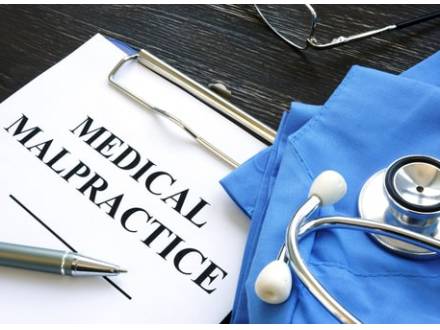121 S. Wilke Road, Suite 301, Arlington Heights, IL 60005
Home and Hospital Visits for Your Convenience
Serving Clients Across 7 Illinois Locations
Recent Blog Posts
Can Seatbelt Usage Affect Injuries and Personal Injury Claims?
 Wearing a seatbelt is one of the simplest ways to reduce the likelihood of sustaining an injury in a car crash. Seatbelts can help to keep vehicle occupants from being thrown forward or ejected during a sudden stop or collision. Approximately 93 percent of Illinois drivers and passengers buckle up regularly. Sadly, unrestrained occupants make up nearly 40 percent of car accident fatalities.
Wearing a seatbelt is one of the simplest ways to reduce the likelihood of sustaining an injury in a car crash. Seatbelts can help to keep vehicle occupants from being thrown forward or ejected during a sudden stop or collision. Approximately 93 percent of Illinois drivers and passengers buckle up regularly. Sadly, unrestrained occupants make up nearly 40 percent of car accident fatalities.
Insurance companies often attempt to use the fact that seatbelts were not used against injured victims. Our knowledgeable Schaumburg, IL personal injury attorneys know Illinois law, which states that failure to buckle up cannot be used to reduce an at-fault party’s negligence or your compensation.
What Are Common Car Accident Causes?
The vast majority of motor vehicle accidents are caused by some kind of negligent driver error, including:
Are Truck Crashes as Serious If a Semi Is Not Hauling a Trailer?
 A recent crash in Woodstock, Illinois, shows that even without a trailer, semi-trucks can still cause serious injuries. On June 23rd, 2025, a semi collided with a passenger vehicle on Route 14 near Bunker Hill Road. The car flipped onto its roof, trapping the driver inside. The severely injured sedan’s driver was airlifted to a nearby hospital. The semi was not pulling a trailer at the time, but the force of the crash was still strong enough to cause devastating consequences.
A recent crash in Woodstock, Illinois, shows that even without a trailer, semi-trucks can still cause serious injuries. On June 23rd, 2025, a semi collided with a passenger vehicle on Route 14 near Bunker Hill Road. The car flipped onto its roof, trapping the driver inside. The severely injured sedan’s driver was airlifted to a nearby hospital. The semi was not pulling a trailer at the time, but the force of the crash was still strong enough to cause devastating consequences.
Many people assume that a collision with a semi-truck without a trailer, often called a bobtail truck, is less dangerous than a fully loaded tractor-trailer. That is not always true. The structure, weight, and stopping power of a bobtail truck can still lead to extremely serious injuries in a crash. If you or someone you love was injured in a truck accident, our skilled Palatine, IL personal injury lawyers can fight to maximize your compensation.
Why Do I Need a Lawyer for a Car Accident Claim?
 After a car accident, most people expect insurance to cover their expenses and other damages. It seems like it should be a simple process. You file a claim, provide proof, and receive a settlement. Unfortunately, most claims do not work that smoothly. Even when the fault for causing the collision seems obvious, many complications can arise.
After a car accident, most people expect insurance to cover their expenses and other damages. It seems like it should be a simple process. You file a claim, provide proof, and receive a settlement. Unfortunately, most claims do not work that smoothly. Even when the fault for causing the collision seems obvious, many complications can arise.
If you do not know how to handle these complications, your compensation could be at risk. Fortunately, our skilled Rolling Meadows, IL personal injury attorneys can overcome challenges as we work to help you obtain as much compensation as you deserve.
What Kinds of Complications Can Arise in a Car Accident Claim?
Every motor vehicle collision has the potential to be extremely complicated. With decades of experience and a focus on personal injury law, we understand how to navigate these and other complexities.
When Are Sepsis Complications Medical Malpractice?
 Anyone can get infections. The human body can attempt to fight those infections, with antibiotics and other medications often assisting in that fight. When an infection is not stopped, a chain reaction can be triggered. Sepsis is the body’s life-threatening extreme response to infections. Untreated sepsis can cause serious conditions and death.
Anyone can get infections. The human body can attempt to fight those infections, with antibiotics and other medications often assisting in that fight. When an infection is not stopped, a chain reaction can be triggered. Sepsis is the body’s life-threatening extreme response to infections. Untreated sepsis can cause serious conditions and death.
Sepsis is very common in the U.S., and healthcare providers should recognize the symptoms and provide the correct treatment immediately. Developing sepsis may not necessarily give you grounds for a medical malpractice claim. However, some forms of medical negligence associated with sepsis can. Our dedicated Arlington Heights, IL medical malpractice attorneys can fight to help you collect maximum compensation.
How Common Is Sepsis in the U.S.?
At least 1.7 million cases of adult sepsis are reported in the U.S. annually. Most patients develop sepsis before being hospitalized for their condition. Sadly, 25-33 percent of people with sepsis visited a healthcare provider in the week before being hospitalized.
Can Motorcyclists Sue If They Were Not Wearing a Helmet?
 Illinois, New Hampshire, and Iowa are the only states in the U.S. that do not require motorcyclists to wear helmets. Still, Illinois riders are strongly advised to use helmets and other kinds of protective gear to reduce the risk of serious injuries in a motorcycle accident.
Illinois, New Hampshire, and Iowa are the only states in the U.S. that do not require motorcyclists to wear helmets. Still, Illinois riders are strongly advised to use helmets and other kinds of protective gear to reduce the risk of serious injuries in a motorcycle accident.
Even though the law does not require it, you could face complications in a personal injury case if you were not wearing a helmet. Our knowledgeable Schaumburg, IL motorcycle accident attorneys know how to overcome these challenges and will help you pursue the full compensation you deserve.
Do Helmets Really Prevent Injuries?
According to the National Highway Traffic Safety Administration, 54 percent of motorcyclists who died in 2022 accidents in states without a helmet law were not wearing helmets. For states with a universal helmet law, only 11 percent were not using one. Wearing a DOT-compliant helmet is estimated to be 41 percent effective in preventing motorcycle passenger deaths and 37 percent effective for operators.
Can You Have Undetected Internal Injuries After a Car Crash?
 Not every injury after a car crash is visible. You might walk away from the accident, exchange insurance information, and go home believing you were lucky. But hours or even days later, pain may begin to creep in. Worse, your body may suddenly begin to shut down, sending you to the emergency room to seek urgent care.
Not every injury after a car crash is visible. You might walk away from the accident, exchange insurance information, and go home believing you were lucky. But hours or even days later, pain may begin to creep in. Worse, your body may suddenly begin to shut down, sending you to the emergency room to seek urgent care.
This is the danger of internal injuries. They are often without obvious symptoms at first. Left untreated, however, they can become life-threatening. Our Illinois personal injury attorneys can offer guidance if you were hurt in a car accident and found out later that you suffered serious internal injuries.
How Do Internal Injuries Happen in Car Accidents?
Even a moderate car crash can jolt the body with tremendous force. When a vehicle stops suddenly, your body does not. This leads to blunt-force trauma, meaning internal tissues or organs are damaged without a visible wound.
Why Should I Get a Medical Evaluation After an Accident?
 Two car occupants refused medical transport after an Arlington Heights rollover crash on May 8th, 2025. News reports are unclear as to whether these people had apparent injuries after the accident. Many kinds of accidents can cause injuries. Those wounds are not always visible, but they may still exist.
Two car occupants refused medical transport after an Arlington Heights rollover crash on May 8th, 2025. News reports are unclear as to whether these people had apparent injuries after the accident. Many kinds of accidents can cause injuries. Those wounds are not always visible, but they may still exist.
If you are injured in any kind of accident caused by someone else, you should always accept or seek a professional medical evaluation. Why? Both to protect your health and provide a baseline for a potential insurance claim. Our skilled Arlington Heights, IL personal injury attorneys can use the evidence provided from your medical exam to help you secure the full compensation you deserve.
What Kinds of Accidents Fall Under Personal Injury?
Common personal injury cases include:
How Do I Know If I Can File a Slip-and-Fall Claim?
 You may know that if you are injured by slipping or tripping and falling on someone else’s property, you might be entitled to compensation through a premises liability claim. However, you need to prove various facts for your claim to be successful. Slip and fall cases can be tricky, so it is best to work with one of our experienced Schaumburg, IL slip-and-fall attorneys if you hope to receive as much as you deserve.
You may know that if you are injured by slipping or tripping and falling on someone else’s property, you might be entitled to compensation through a premises liability claim. However, you need to prove various facts for your claim to be successful. Slip and fall cases can be tricky, so it is best to work with one of our experienced Schaumburg, IL slip-and-fall attorneys if you hope to receive as much as you deserve.
What Is the Illinois Premises Liability Act?
Illinois law requires property owners to use reasonable care to maintain safe premises for invitees and licensees. Invitees are those who are on a property for business purposes, such as a delivery person, a retail shopper, a restaurant diner, or a contractor working on a property. Licensees are people who are on a property for social or non-business-related purposes. Both groups are welcome on the property, unlike trespassers.
Are Wrongful Death Claims Only for Car Accidents?
 In 2023, traffic crashes killed more than three people every day in Illinois, for a total of 1,240 fatalities for the year. While wrongful death claims often stem from car, motorcycle, and large truck crashes, other kinds of fatal incidents can also qualify as grounds for eligible survivors to pursue compensation.
In 2023, traffic crashes killed more than three people every day in Illinois, for a total of 1,240 fatalities for the year. While wrongful death claims often stem from car, motorcycle, and large truck crashes, other kinds of fatal incidents can also qualify as grounds for eligible survivors to pursue compensation.
Several factors need to be considered to see if you qualify to bring wrongful death and survival actions in Illinois. Our knowledgeable Palatine wrongful death attorneys can tell you if you are eligible and help you seek maximum compensation.
How Do I Know If I Can File a Wrongful Death Claim?
Most wrongful death claims are based on proving that someone else’s negligence directly caused the death. In this legal context, negligence refers to careless behavior that endangers others. Negligence in car crashes, for example, could be speeding, following too closely, or distracted or drunk driving. Intentional acts, such as assaults, and defective or dangerous product liability could also be grounds to bring a wrongful death action.
What Compensation Can I Get for My Child’s Birth Injuries?
 Having a baby should be a joyous occasion. You plan for months, getting the baby’s room ready, picking a name, and preparing your other children for a new sibling. When your infant is harmed by preventable birth injuries, your entire world can shift. Caring for a child with permanent conditions like cerebral palsy can be very expensive, not to mention the emotional and mental toll it can take on you.
Having a baby should be a joyous occasion. You plan for months, getting the baby’s room ready, picking a name, and preparing your other children for a new sibling. When your infant is harmed by preventable birth injuries, your entire world can shift. Caring for a child with permanent conditions like cerebral palsy can be very expensive, not to mention the emotional and mental toll it can take on you.
If medical negligence caused your infant’s birth injuries, you could be entitled to compensation. However, you need strong evidence proving that negligence was responsible. Medical malpractice cases are complex, and many people wrongly believe that medical professionals are above reproach. You need an experienced Rolling Meadows, IL birth injuries lawyer as your advocate if you hope to secure the full compensation you deserve.

 Spanish
Spanish


















